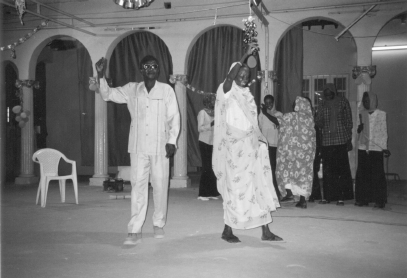The six-month cease-fire agreement for the Nuba Mountains signed on 19th January 2002 in Burgenstock by both the Government of Sudan and SPLM/SPLA under the mediation of the US and Swiss Governments has now only a few weeks left before it expires. All Nuba welcomed this accord, which succeeded in stopping the Government’s arial bombardment and shelling of innocent civilians in the Mountains. It also succeeded in allowing humanitarian access for international agencies to deliver food to people who have been denied relief aid for almost a decade and it has brought relative security in the region, as people are able to move freely within the Nuba Mountains.
NAIROBI, 27 May (IRIN) - A recent resumption of humanitarian aid flows to the rebel-held areas of the Nuba Mountains must translate into the achievement of minimum delivery targets to avert a looming food crisis in the region, according to a group of concerned aid agencies.
 The Bishop Mubarak Scholarship Fund for Nuba Women celebrated graduation of the first five university scholars from Ahfad University in Omdurman in April. A sixth BMF scholar will graduate from Ahlia University in July. All five Ahfad scholars are the first university graduates in their families. Speaking at the commencement ceremony, Ahfad President Gasim Badri, a Patron of the Bishop Mubarak Fund, thanked the British charity for its contribution to women’s education in Sudan.
The Bishop Mubarak Scholarship Fund for Nuba Women celebrated graduation of the first five university scholars from Ahfad University in Omdurman in April. A sixth BMF scholar will graduate from Ahlia University in July. All five Ahfad scholars are the first university graduates in their families. Speaking at the commencement ceremony, Ahfad President Gasim Badri, a Patron of the Bishop Mubarak Fund, thanked the British charity for its contribution to women’s education in Sudan.
The Pearson Peacekeeping Centre (PPC) training team from Canada which is to train local and international monitors for Nuba Mountain Cease-fire had arrived in Khartoum on 21 April 2002. The team spent the first two days in consulting the key personnel from the Joint Military Command (JMC), NGO and UN communities in preparation for the conduct of the training program for the International Monitoring unit.
Sudan has suffered, particularly the Nuba Mountains region which has suffered from the conflict and natural disasters. The Nuba Mountains region was closed from the outside world for more than a decade while the on-going wars caused desperate, economic, social, political situations and education loss. Basically all the infrastructures in the area were virtually destroyed. This led to living conditions and education standard to deteriorate badly followed by huge poverty gap among Nuba people. All these culminated the grievances of everyone concerned about Sudan’s welfare and the Nuba Mountains in particular to pool their efforts in a national organisations to rescue the Nuba situation.